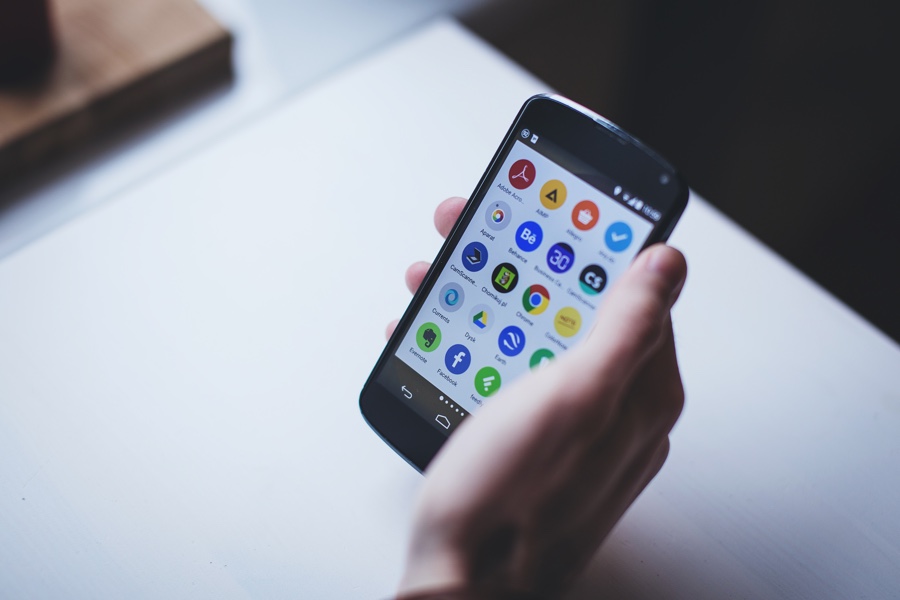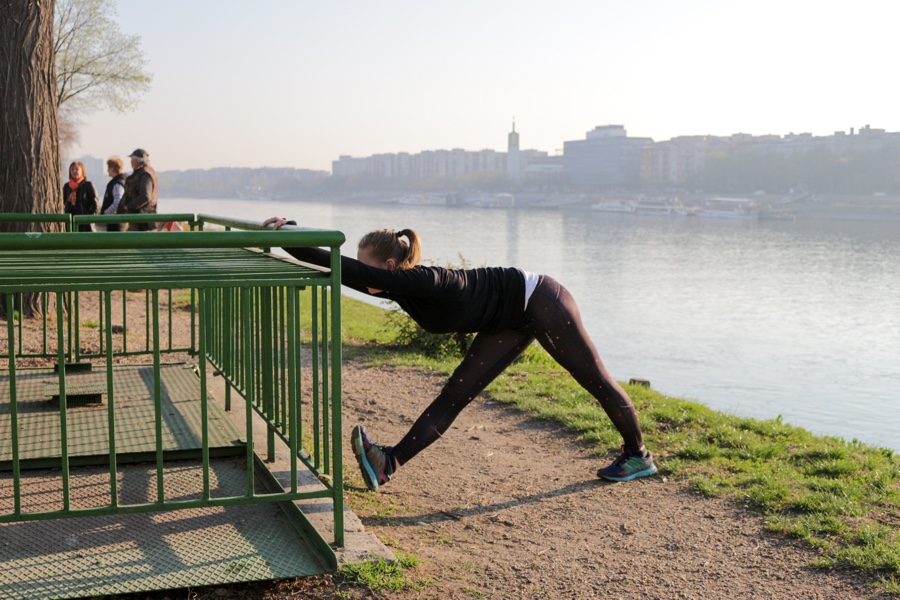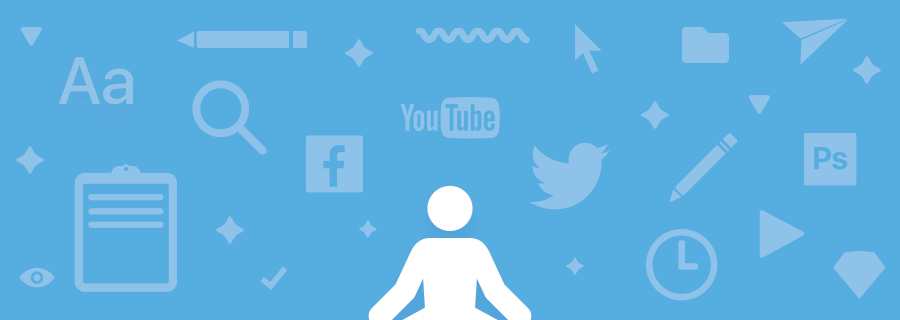When we’re bored or stressed, we tend to do things half-heartedly. We rush things, hoping to complete tasks quickly rather than efficiently.
But what many of us don’t consciously realise is that we can become bored or stressed even when we’re not working. Often enough, it’s what we do offline that impacts our productivity at the desk, and this rings true for designers especially, as a lack of concentration also affects creativity and cognitive function (i.e. memory and the ability to solve UX problems).
Let me give you a quick example:
If you spend your morning free-time watching YouTube videos or scrolling through your Facebook feed (instead of having some quiet offline time), you’ll rapidly deplete most of your mental capacity before you’ve even started work.
Mental capacity is a real thing, and it is limited.
Let’s take a look at some activities that are known to negatively impact your work performance, and what you can do instead that’s better for your mental wellbeing (not only as a designer, but for your overall health and quality of life).
Screen Addiction is a Real Problem
Internet/screen addiction is a huge problem, especially with millennials. Dr. Peter Whybrow, director of neuroscience at UCLA, even went as far as calling screens “electronic cocaine”. It sounds crazy, but be honest with yourself: how many times do you check your phone every day? I bet it’s too many to count!

Addiction takes over your thought process and results in attention fatigue — this is when your brain’s processing power runs out, resulting in stress and boredom.
When designers don't take regular breaks, this is what happens. Now imagine what happens when you spend countless hours scrolling through your Facebook feed. Does it make you feel energetic? Nope, the opposite. It makes your eyes hurt and your brain slow — this is your mind suffering from information overload.
What can we do instead?
What to Do with Spare Moments
We tend to take out our devices whenever we have a spare moment. It’s almost instinctual. Our brains are wired to indulge on information, but designers need to save that energy for ideation and creative thinking. So if you find yourself with a spare moment, and there’s nothing that you can accomplish in that time, then do nothing. Listen to a song, meditate, or simply sit still with your eyes closed. There are so many mental health benefits to meditation I wouldn’t know where to begin!
Filling your brain with more information should be the last thing on your mind.
Hah, see what I did there?
Stay Away From the Internet Before Work
Even when you’re super-busy, the funny thing about internet addiction (or any kind of addiction, really) is that you can always seem to find time to feed that addiction. Before work, try to stow your devices away until you hit the office.
Go for a walk or a run, have an (offline) conversation, spend some time with your kids or your dogs. Also, spending time immersed in nature can do wonders for your creative productivity, which for a designer, is hugely important.

Aside from not stressing yourself out with emails before you’ve even made it to the office, do you really want to work when you’re off the clock?
Do you something you enjoy instead.
Winding Down After Work
Winding down after a hard day of solving user experiences is vital, but many of us head straight for the couch and the television remote (I myself am more of a video gamer). An hour or two is fine, but by spending the entire evening in front of yet another screen, you’re not really winding down. Playing video games and watching TV requires a surprising amount of concentration, and that’s brain-power that you probably don’t have after a hard day of iterating, designing and collaborating.
As a result you’ll feel even more stressed, ultimately ending up with poor sleep, and quite possibly even a headache. With computer-based work, the type of energy that you’re likely to have leftover at the end of the day is physical energy.
If you’re really not in the mood for exercise, reading is a little easier on the brain’s CPU — iOS recently introduced the “Night Shift” mode, which replaces the notorious blue light that makes us feel awake, with warm colours.
When Should I Do Email?
Email. “It’s work right? Has to be done!”.
But does email directly result in more revenue? No, actually doing the work results in more revenue. Sketching the mockups and designing the interfaces is what pays the bills, so this is where most of your time should be allocated.
Limit yourself to 45 minutes of email per day. When you have such limited time, you’ll quickly realise that not every email warrants a response (and eventually, you’ll realise that not every email even warrants a read). More importantly, don’t check emails at the beginning of the day — this is so important. I probably don’t need to tell you that reaching inbox zero can be very time-consuming.
Don’t do emails at breakfast, don’t do emails on the train, don’t even wait until you reach the office. Wait until the afternoon, then replenish and reward yourself with a tasty lunch and a relaxing walk. This means that you’re able to dive straight into the deep end and really tackle those complex UX issues, or come up with a killer visual aesthetic for your client’s app or website, while you’re at peak performance.
You can revisit email once more at the end of the day.
Conclusion
Attention fatigue is a silent killer of productivity.
You might not even realise the various ways that you’re making yourself feel lethargic, bored, stressed, and even irritated at times.
If you start to invest more time doing relaxing, outdoorsy or therapeutic activities, your mind will begin to replenish itself faster, and for longer. What’s even better is that the effects of meditation or “mind resets” can be instant, turning boredom and irritability into enthusiasm and productivity again.
Even a 5-minute meditation session can do wonders for your mental health!



